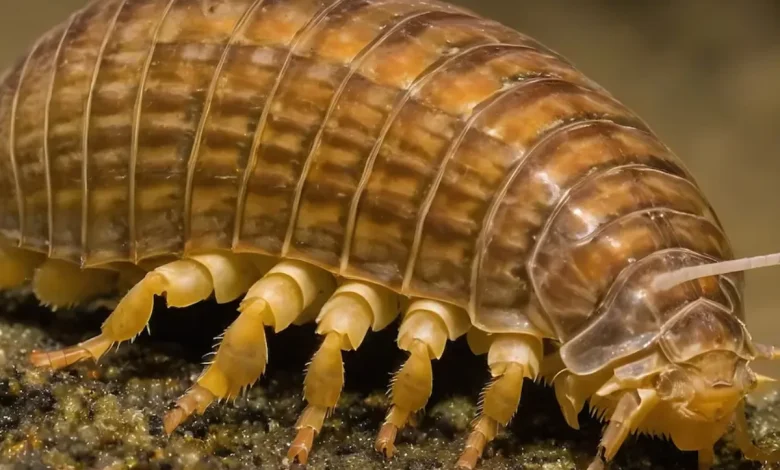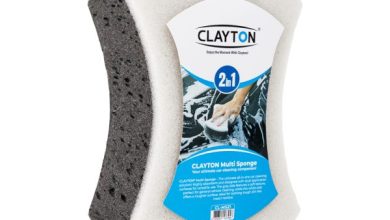Fascinating World of Isopods in the UK Guide to Buying and Caring for These Unique Creatures

Isopods are becoming increasingly popular in the UK, both as pets and for their role in maintaining healthy terrariums. These small, crustacean-like creatures are not only fascinating to observe but also play a vital role in decomposing organic matter. Whether you’re looking to add isopods to your collection or are simply curious about these unique creatures, this guide will cover everything you need to know about isopods, including where to find them for sale in the UK and how to care for them.
Understanding Isopods: What Are They?
Isopods are a type of arthropod that falls under the crustacean class, making them relatives of crabs, lobsters, and shrimp. There are thousands of isopod species worldwide, with many found naturally in the UK. These creatures are known for their segmented bodies, seven pairs of legs, and their ability to roll into a ball as a defensive mechanism. Isopods are often called “woodlice” or “pill bugs” due to their common appearance in damp environments, such as under logs or stones.
Isopods in the UK: A Diverse Selection
The UK is home to a wide variety of isopods, both native and exotic. Among the most popular species in the isopod community are the “Rubber ducky isopods.” These isopods are highly sought after due to their unique appearance, resembling a rubber duck, with bright yellow markings that make them stand out.
Rubber ducky isopods are native to Thailand, but they have become increasingly available in the UK due to their popularity among hobbyists. If you’re looking to purchase Rubber ducky isopods in the UK, it’s essential to find a reputable supplier who can provide healthy and well-cared-for specimens.
Where to Buy Isopods in the UK
Finding isopods for sale in the UK has become easier with the rise of online marketplaces and specialized breeders. However, it’s crucial to purchase from reputable sellers who prioritize the health and well-being of their isopods. When buying isopods, especially species like the Rubber ducky isopod, look for sellers who offer detailed care instructions and provide information on the origin of their isopods.
Some UK-based online stores and breeders specialize in isopods and other invertebrates, offering a range of species, including the highly coveted Rubber ducky isopod. These sellers often ship isopods directly to your door, making it convenient to start or expand your isopod collection.
Caring for Isopods: Creating the Perfect Habitat
Caring for isopods, whether you’re keeping them as pets or using them in a terrarium, requires creating a suitable environment that mimics their natural habitat. Isopods thrive in environments with high humidity, plenty of hiding places, and a consistent food source.
For Rubber ducky isopods and other species, a terrarium or a dedicated isopod enclosure with a substrate made of soil, leaf litter, and decaying wood is ideal. This substrate provides both food and shelter for the isopods. It’s also essential to maintain a moist environment by misting the enclosure regularly and ensuring proper ventilation to prevent mold growth.
Feeding Isopods: What Do They Eat?
Isopods are detritivores, meaning they feed on decaying organic matter. In their natural habitat, they consume leaf litter, rotting wood, and other decomposing plant material. In captivity, isopods can be fed a diet that includes vegetables, such as carrots and cucumbers, as well as dried leaves and commercially available isopod food.
Rubber ducky isopods, like other species, benefit from a varied diet that includes calcium sources, such as cuttlebone or eggshells, to support healthy exoskeleton development. Providing a balanced diet ensures that your isopods remain healthy and active.
Breeding Isopods: Tips for Success
Breeding isopods can be a rewarding experience, especially when keeping species like Rubber ducky isopod. These isopods are known for their slower reproduction rate compared to other species, making their offspring even more valuable.
To encourage breeding, ensure that the isopods’ environment is stable, with consistent temperature and humidity levels. Providing plenty of food and hiding spots will also create a conducive environment for breeding. Isopods typically lay their eggs in the substrate, where the young will emerge and begin feeding on decaying matter.
The Role of Isopods in Terrariums
Isopods are often used in terrariums and vivariums as part of the “clean-up crew.” They play a crucial role in breaking down waste and decaying matter, helping to maintain a healthy and balanced ecosystem. This makes them an excellent addition to enclosures housing reptiles, amphibians, and other invertebrates.
Rubber ducky isopods, with their striking appearance, add an aesthetic appeal to any terrarium while also contributing to the overall health of the environment. Their presence can help reduce the buildup of waste, making maintenance easier for terrarium owners.
Common Challenges in Keeping Isopods
While isopods are generally hardy creatures, they can face challenges if their environmental needs are not met. One common issue is the drying out of the enclosure, which can lead to dehydration and death in isopods. Regular misting and monitoring of humidity levels are essential to prevent this.
Another challenge is the presence of pests, such as mites, which can infest isopod enclosures. Quarantining new isopods before introducing them to an established colony and maintaining a clean environment can help mitigate this risk.
Conclusion: Embrace the World of Isopods in the UK
Isopods, with their fascinating behavior and important ecological role, make an excellent addition to any collection or terrarium. Whether you’re drawn to the unique appearance of Rubber ducky isopods or interested in exploring the diverse species available in the UK, there’s no shortage of options to explore.
By providing the right environment, diet, and care, you can enjoy the company of these intriguing creatures while contributing to a balanced ecosystem. As isopods continue to gain popularity, finding reputable sellers and learning about their care will ensure that your isopods thrive in their new home.



